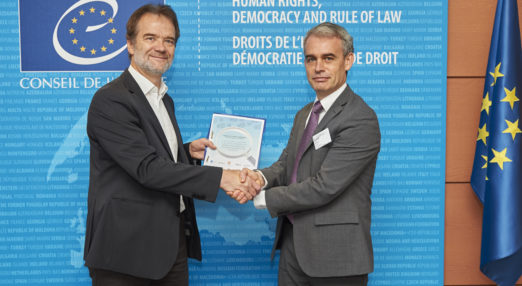CoE
Filter by...
-

Protecting personal data world wide: Convention 108+
Almost one year after the General Data Protection Regulation (GDPR) entered into force in the European Union (EU), the question often arises about what could other countries around the world do to protect their citizens’ personal data. Although there are countries that have data protection laws in place, many still do not, or have laws […]
Read more
-

Nearly 100 public interest organisations urge Council of Europe to ensure high transparency standards for cybercrime negotiations
In light of the passing of the CLOUD Act in the United States that undermines the rights to privacy and other rights, the forthcoming proposal of the European Union on e-evidence, and other initiatives, it is vitally important that the T-CY listens to and engages with civil society proactively and in a timely manner. Civil society wants to engage in this process to ensure the new protocol will uphold the highest human rights standards.
Read more
-

Cross-border access to data has to respect human rights principles
The Council of Europe started preparing an additional protocol to the Cybercrime Convention – a new tool for law enforcement authorities (LEAs) to have access to data in the context of criminal investigations. Ahead of the first meeting of the Drafting Group, EDRi coordinated a civil society submission, signed by 14 organisations from around the […]
Read more
-

Cross-border access to data: EDRi delivers international NGO position to Council of Europe
Today, 18 September 2017, a global coalition of civil society organisations, led by European Digital Rights (EDRi), submitted to the Council of Europe its comments on how to protect human rights when developing new rules on cross-border access to electronic evidence (“e-evidence”). The Council of Europe is currently preparing an additional protocol to the Cybercrime […]
Read more
-

CoE study: Blocking content has to respect fundamental rights
Several European countries lack clear legal provisions and transparent procedures when it comes to blocking and removal of online content. A comparative study published by the Council of Europe stresses that any restriction on the right to freedom of expression must be provided for by law, be proportionate and follow legitimate objectives. Blocking should only […]
Read more
